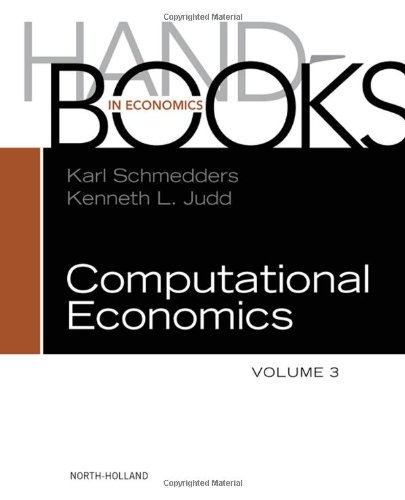

Most ebook files are in PDF format, so you can easily read them using various software such as Foxit Reader or directly on the Google Chrome browser.
Some ebook files are released by publishers in other formats such as .awz, .mobi, .epub, .fb2, etc. You may need to install specific software to read these formats on mobile/PC, such as Calibre.
Please read the tutorial at this link: https://ebookbell.com/faq
We offer FREE conversion to the popular formats you request; however, this may take some time. Therefore, right after payment, please email us, and we will try to provide the service as quickly as possible.
For some exceptional file formats or broken links (if any), please refrain from opening any disputes. Instead, email us first, and we will try to assist within a maximum of 6 hours.
EbookBell Team

0.0
0 reviewsHandbook of Computational Economics summarizes recent advances in economic thought, revealing some of the potential offered by modern computational methods. With computational power increasing in hardware and algorithms, many economists are closing the gap between economic practice and the frontiers of computational mathematics. In their efforts to accelerate the incorporation of computational power into mainstream research, contributors to this volume update the improvements in algorithms that have sharpened econometric tools, solution methods for dynamic optimization and equilibrium models, and applications to public finance, macroeconomics, and auctions. They also cover the switch to massive parallelism in the creation of more powerful computers, with advances in the development of high-power and high-throughput computing.
Much more can be done to expand the value of computational modeling in economics. In conjunction with volume one (1996) and volume two (2006), this volume offers a remarkable picture of the recent development of economics as a science as well as an exciting preview of its future potential.